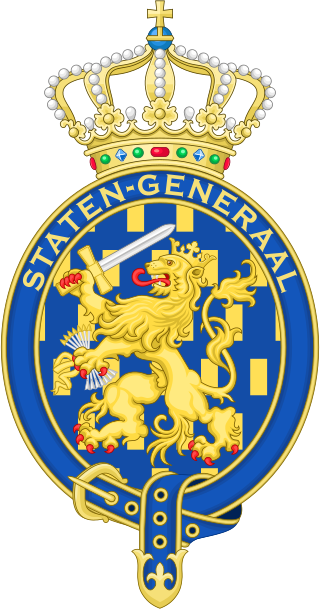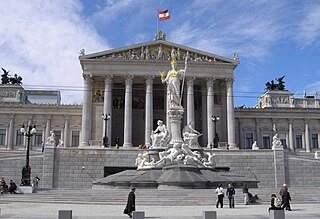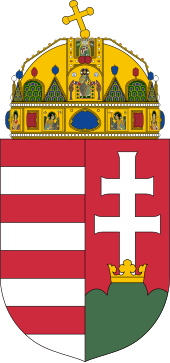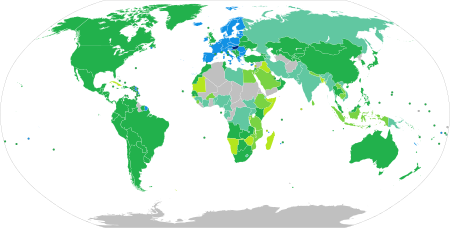
Italian nationality law is the law of Italy governing the acquisition, transmission and loss of Italian citizenship. Like many continental European countries it is largely based on jus sanguinis. It also incorporates many elements that are seen as favourable to the Italian diaspora. The Italian Parliament's 1992 update of Italian nationality law is Law no. 91, and came into force on 15 August 1992. Presidential decrees and ministerial directives, including several issued by the Ministry of the Interior, instruct the civil service how to apply Italy's citizenship-related laws.

Finish nationality law details the conditions by which an individual is a national of Finland. The primary law governing these requirements is the Nationality Act, which came into force on 1 June 2003. Finland is a member state of the European Union (EU) and all Finnish nationals are EU citizens. They are entitled to free movement rights in EU and European Free Trade Association (EFTA) countries and may vote in elections to the European Parliament.

Dutch nationality law details the conditions by which a person holds Dutch nationality. The primary law governing these requirements is the Dutch Nationality Act, which came into force on 1 January 1985. Regulations apply to the entire Kingdom of the Netherlands, which includes the country of the Netherlands itself, Aruba, Curaçao, and Sint Maarten.

Swedish nationality law determines entitlement to Swedish citizenship. Citizenship of Sweden is based primarily on the principle of jus sanguinis. In other words, citizenship is conferred primarily by birth to a Swedish parent, irrespective of place of birth.

Austrian nationality law details the conditions by which an individual is a national of Austria. The primary law governing these requirements is the Nationality Law, which came into force on 31 July 1985.

The citizenship law of the Czech Republic is based on the principles of jus sanguinis or "right by blood". In other words, descent from a Czech parent is the primary method of acquiring Czech citizenship. Birth on Czech territory without a Czech parent is in itself insufficient for the conferral of Czech citizenship. Every Czech citizen is also a citizen of the European Union. The law came into effect on 1 January 1993, the date of the dissolution of Czechoslovakia, and has been amended in 1993, 1995, 1996, 1999, 2002, 2003, and 2005. Since 1 January 2014, multiple citizenship under Czech law is allowed.

Polish nationality law is based primarily on the principle of jus sanguinis. Children born to at least one Polish parent acquire Polish citizenship irrespective of place of birth. Besides other things, Polish citizenship entitles the person to a Polish passport.

Slovenian nationality law is based primarily on the principles of jus sanguinis, in that descent from a Slovenian parent is the primary basis for acquisition of Slovenian citizenship. However, although children born to foreign parents in Slovenia do not acquire Slovenian citizenship on the basis of birthplace, place of birth is relevant for determining whether the child of Slovenian parents acquires citizenship.

Japanese Nationality Law details the conditions by which a person holds nationality of Japan. The primary law governing nationality regulations is the 1950 Nationality Act.

Nationality law of Greece is based on the principle of jus sanguinis. Greek citizenship may be acquired by descent or through naturalization. Greek law permits dual citizenship. A Greek national is a citizen of the European Union, and therefore entitled to the same rights as other EU citizens.

Turkish nationality law is based primarily on the principle of jus sanguinis. Children who are born to a Turkish mother or a Turkish father are Turkish citizens from birth. The intention to renounce Turkish citizenship is submitted in Turkey by a petition to the highest administrative official in the concerned person's place of residence, and when overseas to the Turkish consulate. Documents processed by these authorities are forwarded to the Ministry of Interior (Turkey) for appropriate action.

Lithuanian nationality law operates on the jus sanguinus principle, whereby persons who have a claim to Lithuanian ancestry, either through parents, grandparents, great-grandparents may claim Lithuanian nationality. Citizenship may also be granted by naturalization. Naturalization requires a residency period, an examination in the Lithuanian language, examination results demonstrating familiarity with the Lithuanian Constitution, a demonstrated means of support, and an oath of loyalty. A right of return clause was included in the 1991 constitution for persons who left Lithuania after the Soviet occupation in 1940 and their descendants. Lithuanian citizens are also citizens of the European Union and thus enjoy rights of free movement and have the right to vote in elections for the European Parliament.

Estonian citizenship law details the conditions by which a person is a citizen of Estonia. The primary law currently governing these requirements is the Citizenship Act, which came into force on 1 April 1995.

Bulgarian nationality law is governed by the Constitution of Bulgaria of 1991 and the citizenship law of 1999.

Danish nationality law is governed by the Constitutional Act and the Consolidated Act of Danish Nationality. Danish nationality can be acquired in one of the following ways:

The Romanian nationality law addresses specific rights, duties, privileges, and benefits between Romania and the individual. Romanian nationality law is based on jus sanguinis. Current citizenship policy in Romania is in accordance with the Romanian Citizenship Law, which was adopted by the Romanian Parliament on March 6, 1991, and the Constitution of Romania, which was adopted on November 21, 1991.

Luxembourg nationality law is ruled by the Constitution of Luxembourg. The Grand Duchy of Luxembourg is a member state of the European Union and, therefore, its citizens are also EU citizens.

The Croatian nationality law dates back from June 26, 1991, with amendments on May 8, 1992, October 28, 2011, and January 1, 2020, and an interpretation of the Constitutional Court in 1993. It is based upon the Constitution of Croatia. It is mainly based on jus sanguinis.

Slovak nationality law is the law governing the acquisition, transmission and loss of Slovak citizenship. The Citizenship Act is a law enacted by the National Council of Slovakia in regard to the nationality law following the dissolution of Czechoslovakia. In 2010, it was controversially amended, enacting loss of Slovak citizenship upon naturalization elsewhere. This was said to have affected the 2012 election to some degree.

Georgian nationality law is the organic law governing the acquisition, transmission and loss of Georgian citizenship.






















